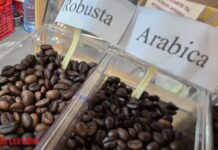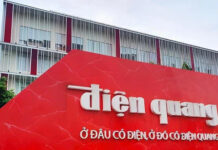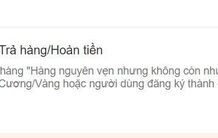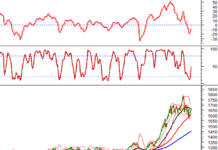According to a report from the Ministry of Industry and Trade, the export turnover of goods in January 2024 is estimated at $33.57 billion, an increase of 6.7% compared to December 2023. Compared to the same period last year, the export turnover of goods in January 2024 increased by 42%; of which the domestic economic area increased by 62.6%, and the area with foreign investment (including crude oil) increased by 35.6%. This is also the highest export turnover month since September 2022.
Many new orders
According to statistics from the International Border Gate Management Board of Mong Cai (Quang Ninh), on the morning of February 18, 95 vehicles exported agricultural products to China through the Hanoi Road Bridge (Hai Yen Ward, Mong Cai City). Accordingly, over 900 tons of agricultural products were exported to China, with an estimated value of $3.7 million.
Mr. Hoang Khanh Duy, Deputy Head of the Management Board of Dong Dang Border Economic Zone (Lang Son Province), said that customs clearance of goods at border gates in the area returned to normal after the Lunar New Year holiday. Earlier, from February 14 to 17, there were trucks carrying goods imported and exported through the Huu Nghi and Tan Thanh border gates if pre-registered.
According to statistics from the Management Board of Dong Dang Border Economic Zone, at border gates, there are about 800 imported vehicles per day and about 400 – 500 exported vehicles per day. The number of vehicles in stock at yards is only about 200. There is no situation of congestion of goods due to the functional departments such as border guards, customs, and taxes have plans to regulate and support enterprises (DN) to declare online through the digital customs software. The infrastructure of the yards is also upgraded, invested, ensuring about 1,000 vehicles per yard for import and export.
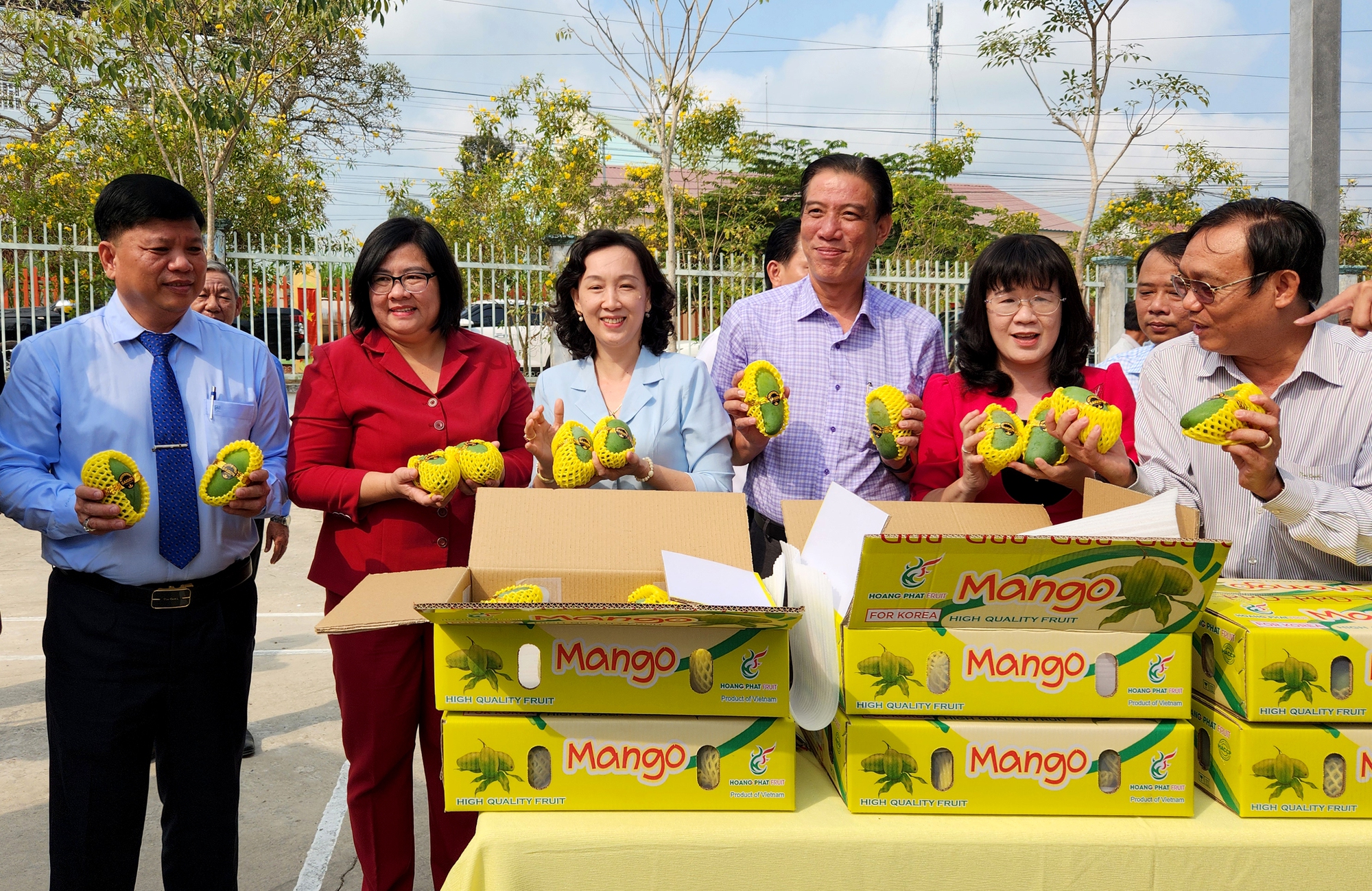
The first shipment of small-sized mangoes exported to South Korea on February 19. Photo: VINH KY
Ms. Ly Kim Chi, Chairman of the Ho Chi Minh City Food and Food Association, announced good news that before Tet, food and food companies have received new export orders. Some companies have received enough orders to produce until March and April, and some companies have stable orders until June 2024.
“Global inflation is decreasing, inventories of this group of goods in the world are also decreasing, so partners are returning to place orders. Many companies have recruited more labor to timely meet export orders” – Ms. Chi said.
Mr. Nguyen Duy Thuan, CEO of Loc Troi Corporation, said that the company is organizing production to fulfill the orders signed before the Lunar New Year. Particularly, it is noteworthy that imported rice to fulfill the rice export orders of the logistical supply agency of the Indonesian Government (Bulog) is 65,000 tons that Loc Troi won the bid and Bulog announced at the beginning of February.
“In general, Vietnamese rice companies have won the bid for over 400,000 tons of 5% broken white rice out of the total of 500,000 tons for Bulog, the logistics agency of Indonesia. For the largest export market, the Philippines (accounting for about 40% market share), a memorandum of understanding on trade cooperation in rice was recently signed between Vietnam and the Philippines. These pieces of information show positive progress in the export of Vietnamese rice in 2024” – Mr. Thuan commented.
However, according to Mr. Thuan, in 2024, because the actions of India – the world’s largest rice exporter – regarding whether to continue implementing the rice export ban or not are unpredictable, companies are still in a state of not daring to hold large inventories, instead maintain a quick purchase and sale approach.
Mr. Nguyen Thai Binh, Chairman of the Vietnamese Fruit and Vegetable Association, said that the information about vegetable and fruit exports has had many positive changes since the beginning of the year to key markets such as China, the United States, Europe… so the fruit and vegetable sector aims to achieve an export turnover of about $6.5 billion in 2024.
The basis for the fruit and vegetable industry to set this target is because the demand from China market is still high and Vietnam plans to open two new products to this potential market: fresh coconut and frozen durian. China is Vietnam’s largest market for fruits and vegetables, and transportation is mainly by road, so there is no negative impact from the recent increase in freight rates on Europe, the US for some other items.
However, in 2024, the fruit and vegetable industry still faces challenges such as continuing to bear the general impact of the Russia – Ukraine conflict, Israel – Hamas, leading to the instability of the world economy, and consumers tightening their spending. Currently, many import partners want to sign long-term contracts with Vietnamese fruits and vegetables, but export companies are not willing to sign because domestic prices fluctuate greatly, posing many risks.
Highlights of agriculture – aquaculture
Regarding the cashew nut industry, Mr. Vu Thai Son – Chairman of the Board of Directors of Long Son Corporation, Chairman of the Binh Phuoc Cashew Association – forecasted that in 2024, the export value of cashew nuts is likely to decrease in value, although the export volume of cashew nuts is still increasing due to lower selling prices. The reason is that the import volume of raw cashew nuts to Vietnam has increased.
In terms of the market, demand from the US and China is still high, especially when the prices are low. “To achieve efficiency in production, companies should not compete to buy raw materials, pushing up the price of raw materials while unable to increase the selling price of finished products. The amount of raw cashew nuts is very large, higher than the previous year, so companies need to be alert, avoid high prices” – Mr. Son advised.
According to Ms. Ly Kim Chi, the current orientation of the Government still relies on agriculture in sustainable development. Therefore, companies will be very favorable in exporting rice, vegetables and fruits, and some processed products. The bright spot of agricultural exports is that Vietnam no longer exports bulk rice as before but increases the supply of high-quality rice.
“Along with the orientations of the state, Ho Chi Minh City is applying Resolution 98 to put into production, providing a basis for companies to officially carry out some activities. On February 19, the State Financial Investment Company signed an agreement with the Ho Chi Minh City Business Association to support enterprises in key industries and some other sectors access to capital sources in the city’s investment stimulation program, helping companies mobilize capital with preferential interest rates or interest rate compensation (0% interest rate) into production, from which companies can invest with peace of mind and develop production” – Ms. Chi further explained.
According to the report of the Ministry of Industry and Trade, in January 2024, there are 7 items with export turnover exceeding $1 billion, accounting for 65.7% of the total export turnover, including: wood and wood products; textile and garment products; computer and electronic products and components… The group of agricultural and aquatic products continues to be a bright spot in the overall export picture of the country with an estimated export turnover of $3.33 billion, an increase of 9.1% compared to December 2023 and accounting for 9.9% of the total export turnover of the country. Among them, cassava and cassava products increase by 93.4%, reaching an estimated $274 million; followed by fruits and vegetables with an increase of 24.9%, reaching $510 million; cashew nuts and tea increasing by more than 10%.
The main reason is the advantage in prices of agricultural products in January 2024 continued to increase, while the prices of items in the processing industry group are still on a downward trend (coffee prices increased by 35.2% compared to the same period last year, reaching an average of $2,955/ton; rice prices increased by 33.5%, reaching an average of $693/ton; black pepper prices increased by 14.8%, reaching $3,953/ton; rubber prices increased by 3.7%…).
The Ministry of Agriculture and Rural Development said that in January 2024, the export turnover of agricultural – forestry – aquatic products increased sharply. In terms of markets, export values to markets all increased. Among them, exports to the Asian region reached $2.52 billion, an increase of 86.3%; America reached $1.18 billion, an increase of 93.6%; Europe reached $532 million, an increase of 38.2%; Africa reached $104 million, an increase of 185.4%… The value of exports to China accounted for 23%, an increase of 106.9%; the US accounted for 20.8%, an increase of 95.9%, and Japan accounted for 7.4%, an increase of 47.5%.
Deputy Minister of Agriculture and Rural Development Phung Duc Tien assessed that the market is recovering well. “All goods for export have had a sharp increase. Exports of rice, shrimp, catfish, rubber… have grown by 52.6% – 81% depending on the item; cashew nut exports have increased by up to 129%, fruit and vegetable exports have increased by 112%, coffee exports have increased by 103%…” – Mr. Tien cited.
According to the leaders of the Ministry of Agriculture and Rural Development, in the period 2021 – 2023, the basic agriculture sector has completed its tasks, and 2024 is a year of acceleration and the results of the initial export months signal a year of favorable conditions.
Mr. PHUNG DUC TIEN, Deputy Minister of Agriculture and Rural Development:
Promoting the opening of new markets
The Ministry of Agriculture and Rural Development identifies the US, Japan, EU, and China as key markets. In the future, the ministry will promote the opening of new markets, which still have many potentials such as Halal Islamic countries, the Middle East, Africa… At the same time, it will take advantage of free trade agreements, especially the CPTPP and EVFTA agreements, to enhance the export of key agricultural – forestry – aquatic products, support companies in signing new export orders.
China, in particular, is a market with a very large consumption capacity with over 1.4 billion people. However, to facilitate agriculture products to be brought to this potential market, smart border gates, logistics, e-commerce… must be developed because this is an essential trend.
Ms. LY KIM CHI, Chairman of the Ho Chi Minh City Food and Food Association:
Enterprises must change towards greening
The Ho Chi Minh City Food and Food Association always warns companies to focus on the quality of exported goods, increase the export of organic food, and safe food… according to the consumption tastes in the world. The Association also warns companies to change towards greening to meet the requirements of large markets such as the US, Europe…
Competing in exports at the present stage requires companies to participate in deep processing, they have to be “green”. To do so, companies need support from the state. It is very pleased that some banks have started to provide loans to digitalized companies, green companies, and support companies in changing their production models and reaching out to the world.
V.Duan – T.Nhan wrote
13 tons of small-sized mangoes exported to South Korea
The Department of Agriculture and Rural Development of An Giang Province, in coordination with Chợ Mới District People’s Committee, on February 19, held a ceremony to announce the first export of 13 tons of small-sized mangoes to the South Korean market and signed a linkage in mango production and consumption following the value chain.
Speaking at the ceremony, Ms. Nguyen Thi Minh Thuy, Vice Chairman of An Giang Provincial People’s Committee, emphasized that mangoes are a key tree, with high economic value, and have actively contributed to the agricultural growth of the province. Up to now, the area of mango planting in the province has reached over 12,600 hectares, of which Chợ Mới has planted 6,400 hectares; the output is more than 225,000 tons/year. Currently, Chợ Mới’s mangoes have been exported to markets such as China, the US, South Korea, Japan, Australia. On January 5, Chợ Mới’s green-skinned mangoes exported the first batch to the US market.
At this event, GAP Cù Lao Giêng Cooperative (Chợ Mới District) signed a contract to link the consumption of hundreds of tons of mangoes per year with export companies. Previously, GAP Cù Lao Giêng Cooperative had signed a contract with more than 100 official members and linkages in the supply of inputs, product consumption, with a total area of over 70 hectares, expected to harvest more than 1,700 tons.
V.KY


